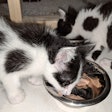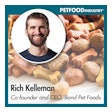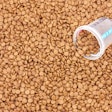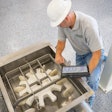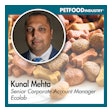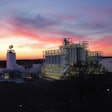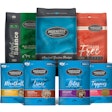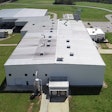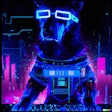(1).jpg?auto=format%2Ccompress&q=70&w=400)
Netherlands-based Jonker, which now revolves around the manufacture of quality petfood internationally marketed under Jonker's own brand names as well as under private labels, started as a flours and compounds trading company in 1937. Ever since making the transition to petfood, the Jonker family-which still runs the business-has been particularly in tune to market changes, foreseeing upcoming opportunities.
Moving on up
The ability to realize new possibilities for continuous improvement and expansion of the Jonker brand led to the decision during the 1970s to start the company's own pellets production, first both for feed and dog food and soon after only for dog food. Between the 1980s and 1990s, many other changes were made, including:
- The setup of the first extrusion line for the development of new kibble products;
- A progressive range extension to add cat food and new varieties; and
- The establishment of a new, larger and modern facility in the Northern Brabant industrial basin in the Netherlands, strategically locating the new firm in a better position, especially in terms of logistics.
"Every gradual improvement has constantly been designed and implemented while thinking ahead," says Tjerk Jonker, current owner and son of the original Jonker founder. "As a company, we always want to be ready and prepared to meet new market requirements in preparation for further growth."
Putting people first
Human resources are a key asset to the company's inner workings. According to Jonker: "Business success is largely influenced by people's dedication and personal welfare. It is of greater importance to us, as a business, to provide a good, stimulating work environment for our employees."
Martin Sonneveld, production and logistic director, is living proof of this company culture. Sonneveld started with Jonker about 18 years ago as a production operator, developing his skills and experience until his current position as a director. He has witnessed and has been involved to a great extent in Jonker petfoods development efforts. As director, Sonneveld has been working tirelessly to progressively increase the production capacity, as well as to upgrade production methods, process technology and product quality.
"The continuous search for improvement is critical for us, and we're still pushing further advances we achieved during the past decade and beyond," explains Sonneveld. With the installation of a modern milling and mixing line, as well as expanding silo storage to reach a sum of 25 raw material silos with a total capacity of 2,250 metric tons and 59 end product silos with a total capacity of 2,500 metric tons, Jonker was able to increase the total production capacity to about 20 metric tons per hour.
A piece of every pie
This remarkable volume is achieved through three extrusion lines. The multiple lines are entirely automated from dosing, mixing, drying, coating to cooling of the finished product.
Jonker petfood is able to cover different market segments because of its innovative production facilities. Its highly lucrative private label production, for example, offers over 200 customized recipes formulated internally. Several packaging options are also available according to customer demand, such as 10 or 20 kg to 2-5 kg or smaller (1 kg to 200 g), bulk and bags to be repacked.
Jonker focuses on quality control and good manufacturing practices and meeting, if not exceeding, customer demands. Continuing to set the bar for innovation and flexibility, the Jonker plant has recently been certified and is suitable for the production of organic petfood. "One of the more recent and promising niche-segments, which appears to be increasingly attracting consumers despite these latest challenging times," is how Jonker describes the business-savvy move.

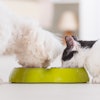

(1).jpg?auto=format%2Ccompress&fit=crop&h=167&q=70&w=250)

.jpg?auto=format%2Ccompress&fit=crop&h=167&q=70&w=250)


